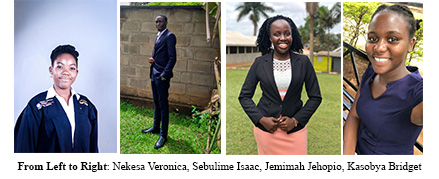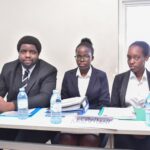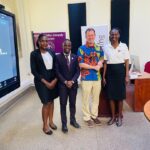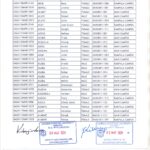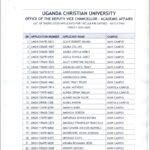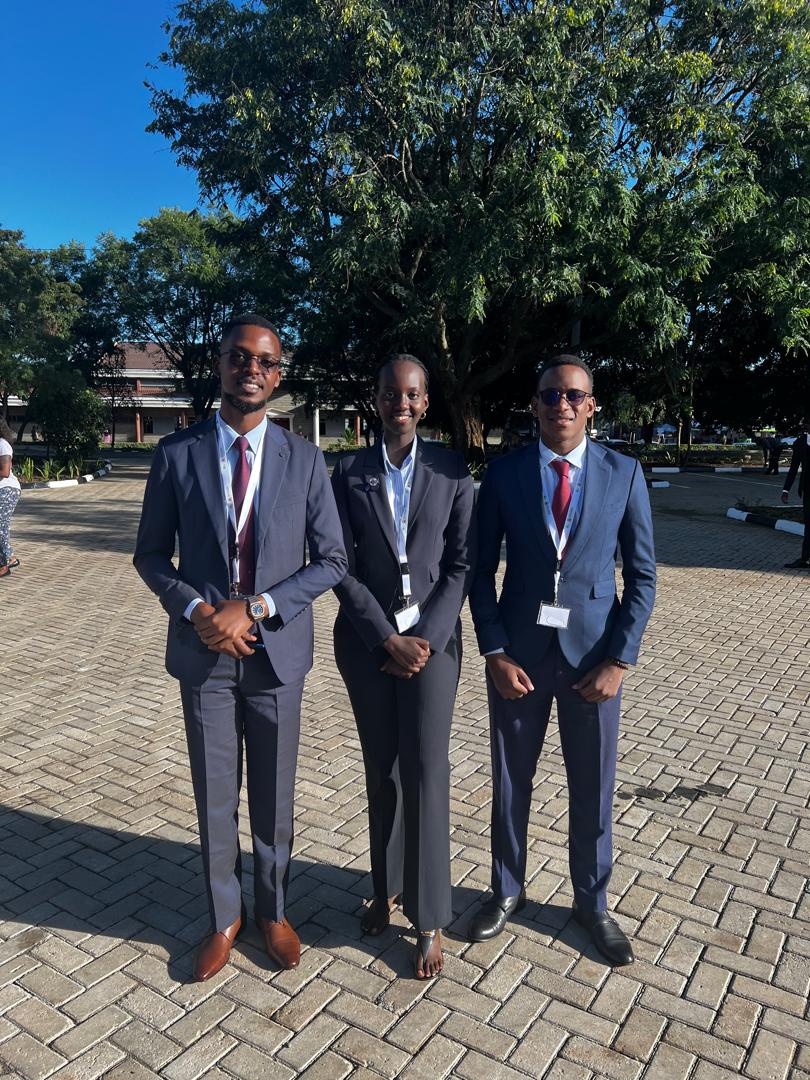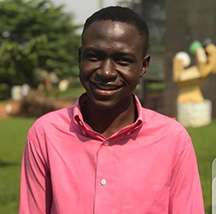UCU Law has qualified to participate in the international rounds of the John H. Jackson World Trade Organization (WTO) Moot Court Competition for the year 2020 that are scheduled to take place sometime between July and August in Geneva, Switzerland. The moots are organised by the European Law Students Association (ELSA) in partnership with the WTO and its graduate institution, IE University and Georgetown Law.
The African Regional Rounds and qualifier competitions for the International Rounds took place on the 23rd April 2020 via video conferencing web-based application, Microsoft Teams, one of the only other viable means of maintaining the continuance of activities that have been affected by COVID 19, a global pandemic, given countries world over are facing prolonged lockdowns.
In the conduct of the moot, the teams were to participate in three rounds, preliminary rounds, semi – finals and the finals.
Moot almost gets cancelled due to COVID 19
Prior to the wide manifestations of the pandemic, the competitions were supposed to take place in Nairobi, Kenya from the 19th to 23rd April 2020. However, after the World Health Organization declared COVID 19 a global pandemic on the 11th March 2020, messages were sent out to the different participants that the moot would go virtual.
Lockdowns have prevented the possibilities of physical contact owing to social distancing mechanisms and travel restrictions in – or out bound that are being implemented by governments.
“We received communication (from Elsa) that the competition was cancelled and that if any team was willing to participate by virtual, the platform would be provided” says Bwambale Wilberforce, one of the coaches of the UCU Law WTO Moot team. Bwambale is also an alumnus of the university and a teaching assistant at the Faculty of Law.
The other coaches that guided the team in the preparations included Mpiirwe Isaac, Ahabwe Peter, Kyarimpa Judy, Pius Kitamirike, Herman Tuhairwe and Samson Wanambuko, all alumni and some of them staff at the faculty.
Representations
The Faculty participated in the moot through the representation of four third year law studentsSsebulime Isaac, Jemimah Jehopio, Nekesa Veronica and Kasobya Bridget from Kampala Campus.
From Uganda, two other universities Makerere University and Cavendish University were represented. However, the total African participation was no ascertainable as Bwambale observes, “in Africa, we did not get to know how many teams were represented, but there were more than 12 teams”.
Experience with Microsoft teams
The conduct of the sessions via digital platforms was not expected to be a smooth sail without tide. Members of the team experienced some challenges during the sessions. According to the coach, “the experience with Microsoft Teams was tough because our network was very very bad”.
The team faced some connection issues which affected their participation. The first orator was not able to connect to the session online, the moment it was her turn to submit. This issue lasted for about 24 minutes in the preliminary rounds. Luckily, the second orator was allowed to start while the first orator reconnected. The judges also didnot factor the disconnected time when counting time spent by the affected team members.
The same issue haunted the team even in the semi – finals where the internet connection kept disconnecting the same team member different times during the session for about 8 cumulative minutes. The student was connecting from her village in Kamuli District.
“The experience was a learning opportunity for all of us on the team. We had to adjust to speaking to a camera compared to the usual face to face way of mooting (where the mooters physically face a panel)” says Isaac Ssebulime, one of the mooters.
He remembers that the members of his team used their personal gadgets like phones to make their submissions.
“Personally, I used my phone throughout the competition” Ssebulime remembers. The team was also supported by the moot coaches especially on how to use the Microsoft Teams platform and an internet package from Bwambale. The remainder part of staying connected throughout the sessions was left for the individual mooters “who had to fend for (them)selves and endeavor to connect and ably compete while in (their) different locations.”
The team was however excited to have represented the country on the African stage, and to be representing on the international scene in Geneva, Switzerland for later and as Ssebulime puts it “we are without a doubt, elated and extremely humbled”. He is particularly happy for the fact that “this is the first time UCU and Uganda has got this far in this competition” signifying how far they got by reaching the semi final rounds of the competitions and qualifying to be at the global rounds.
In the competition, UCU managed to reach the semi – final position to qualify for the international rounds where 4 teams from Africa will be competing against other 16 teams from the other regional rounds. There is a total of 5 regional rounds of which 4 teams are selected to represent in the international rounds.
The university was able to emerge third, out of the 4 teams that qualified for the semi – finals.
Bwambale is thankful for the opportunity that the faculty gave him after it entrusted in him the responsibility of leading the team.

